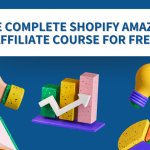Creating Helpful, Reliable, People-First Content: A Comprehensive Guide for Crafting Valuable Online Experiences
In today’s digital landscape, the art of creating helpful content extends far beyond merely attracting search engine rankings. Google’s automated ranking systems prioritize content that genuinely benefits users, aiming to present reliable, helpful information at the forefront of search results. This comprehensive guide delves into the intricate aspects of creating helpful content, emphasizing its importance, and offering actionable insights for creators.
Table of Contents
Understanding the Essence of Creating Helpful Content

1. The Significance of Authentic Content:
Creating helpful content that resonates with users’ needs is the cornerstone of a successful online presence. The concept of “people-first content” revolves around delivering valuable insights, solutions, and information that genuinely enrich users’ experiences.
2. Navigating Google’s Ranking System:
Google’s ranking algorithms emphasize the principles of Experience, Expertise, Authoritativeness, and Trustworthiness (E-A-T). These factors ensure that content creators prioritize quality and relevance to build credibility and user trust.
Evaluating Content for Quality and Relevance

1. Self-Assessment Process:
An in-depth evaluation of your content is essential to determine its helpfulness and authenticity. Engaging with a set of targeted questions assists in assessing whether your content aligns with the people-first approach.
2. Content and Quality Questions:
Digging into the specifics, content and quality questions delve into originality, comprehensive coverage, insightful analysis, and value beyond the obvious. Addressing these factors ensures that your content adds substantial worth to users.
3. Expertise Questions:
Trustworthiness is paramount, and expertise questions focus on presenting information from credible sources. Ensuring accurate information, a depth of knowledge, and factual accuracy contribute to establishing authority.
Crafting a Seamless Page Experience

1. Embracing User-Centricity:
An exceptional page experience goes beyond content quality. It involves seamless navigation, responsive design, fast loading times, and adherence to security standards. Prioritize these aspects to enhance user satisfaction.
2. Content’s Role in Page Experience:
The role of content in providing a positive page experience is crucial. Well-structured content, relevant headings, and engaging visuals contribute to an immersive user journey.
Steering Clear of Manipulative Strategies

1. The Dangers of Search Engine-First Content:
Content created solely for search engine rankings undermines the essence of authenticity and user value. Avoiding manipulative strategies that compromise the quality of content is pivotal.
2. Balancing SEO and User Value:
Search engine optimization (SEO) remains relevant but should be implemented in a way that enhances user value. Align SEO practices with the goal of creating content that genuinely serves users’ interests.
Read More: What Is SEO Marketing? Definition, Importance, and Types (2023)
Embracing Google’s E-A-T Principles

1. Deciphering Experience, Expertise, Authoritativeness, and Trustworthiness:
Google’s E-A-T principles form the foundation of ranking algorithms. By aligning with these principles, creators can establish themselves as reliable sources of valuable information.
2. Role of Quality Raters:
Quality raters play a role in evaluating content based on E-A-T principles. Their insights assist Google in refining algorithms to ensure the delivery of trustworthy search results.
The Dynamics of Content Creation: “Who, How, and Why”
1. Clarifying Authorship:
Clearly indicating the authorship of content enhances transparency and credibility. Providing background information about authors builds trust among users.
2. Shedding Light on Creation Processes:
Detailing the process of content creation offers transparency and authenticity. This is particularly relevant for reviews, tutorials, and instructional content.
3. Unveiling the Intent:
Understanding why content is created is crucial. Prioritizing content that genuinely benefits users and addresses their needs fosters a sense of trust and credibility.
Read More: SEO 2023: The Comprehensive Guide to Dominating Search Engines
Crafting a Digital Legacy of Value
In an era where authenticity and user-centricity are paramount, the process of creating helpful content stands as a testament to your commitment to enriching the online experience. By adhering to the principles of quality, relevance, and transparency, you establish a lasting connection with your audience. Navigate the dynamic landscape of content creation with a focus on creating helpful content, and watch as your online presence flourishes with credibility and trust.
Frequently Asked Questions (FAQs) About Creating Helpful, Reliable, People-First Content
1. What is the significance of creating helpful, reliable, people-first content?
Creating content that genuinely benefits users, prioritizes accuracy, and avoids manipulation for search engine rankings is crucial for establishing credibility, trust, and a positive online reputation.
2. How does Google’s ranking system prioritize content quality?
Google’s ranking systems emphasize content that aligns with Experience, Expertise, Authoritativeness, and Trustworthiness (E-A-T). Providing valuable content that adheres to these principles enhances its visibility in search results.
3. What are the key aspects of evaluating content quality?
Content and quality questions cover originality, comprehensive information, insightful analysis, accurate sourcing, and overall value. Additionally, expertise questions ensure that content is well-researched and trustworthy.
4. How can I create an exceptional page experience for my audience?
An exceptional page experience involves various elements, including site speed, mobile-friendliness, security, and meaningful content. Strive for excellence across these aspects to enhance user satisfaction.
5. Is search engine optimization (SEO) important for people-first content?
Yes, SEO is relevant, but it should be applied to people-first content. SEO practices that align with content authenticity and user value are beneficial for improving visibility without compromising quality.
6. How do I avoid creating content solely for search engines?
Steer clear of producing content with the primary intention of attracting search engine visits. Instead, focus on providing content that directly addresses the needs and interests of your target audience.
7. What role do quality raters play in content evaluation?
Quality raters assess content based on E-A-T principles and provide insights into how algorithms are performing. Their feedback helps Google ensure that search results align with content quality and authenticity.
8. How do I enhance trust and credibility in my content?
Clearly indicating authorship, providing transparent information about content creation processes, and demonstrating expertise contribute to building trust and credibility in your content.
9. Can content automation be aligned with people-first content?
Yes, content automation can be used in a people-first approach when it adds value and authenticity to the content. Clearly disclosing automation usage and its benefits enhances transparency.
10. What’s the difference between content created for people-first and search engine-first approaches?
Content created for people-first approach genuinely benefits users, providing valuable information and solutions. Search engine-first content aims to manipulate rankings rather than serving user needs.
11. How can I align my content with Google’s E-A-T principles?
Understanding and adhering to Experience, Expertise, Authoritativeness, and Trustworthiness (E-A-T) principles involve creating content that demonstrates credibility, authority, and relevance.
12. Can SEO be used to manipulate search engine rankings?
Using SEO to manipulate rankings goes against Google’s guidelines. SEO should be applied to enhance the visibility of people-first content without compromising authenticity.
13. What’s the bottom line for creating successful online content?
The foundation of successful online content lies in prioritizing user needs, delivering valuable insights, and maintaining content authenticity. By focusing on helping users, you create a lasting and positive impact in the digital landscape.









